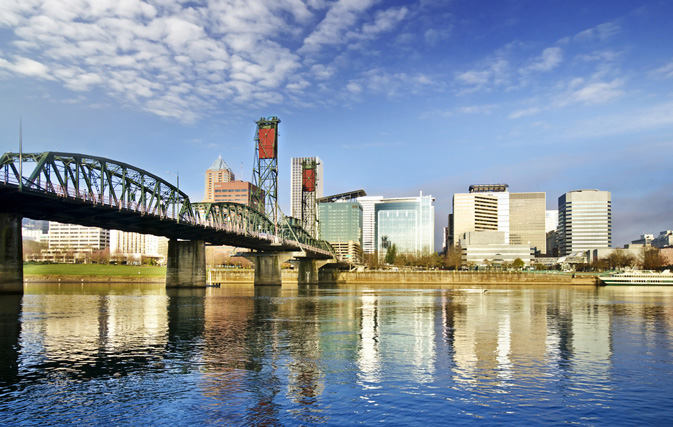PORTLAND, Ore. — It’s been dubbed “Taxis Gone Wild,” and for the next 120 days Oregon’s largest city will see a big shakeup in an old-school industry.
The Portland City Council late Tuesday narrowly approved a four-month experiment allowing ride-sharing companies such as Uber and Lyft to operate legally while deregulating the existing cab industry.
Uber allows prospective customers to use a phone app to hail and pay a driver who uses his own car. It launched Portland service in December, but suspended operations after the city took legal action. A city task force then spent months developing recommendations for Uber to operate legally, and that led to the 3-2 vote.
Though Uber has a global reputation for flouting government regulations, the company agreed to several conditions to operate in Portland.
Uber drivers must have liability insurance, undergo background checks, obtain a business license and have their cars inspected. They won’t be allowed to accept street-hailed fares or park in taxi lines.
Uber agreed to guarantee service to people with disabilities, something it hasn’t done elsewhere, and won’t be able to reject trip requests just because the length of the journey isn’t lucrative.
Existing cab companies, meanwhile, will be allowed to hire as many drivers as they want and set fares without regulation.
Though the vote was a split decision, the council was largely united in its dislike for Uber.
“I appreciate that they’ve been behaving themselves a bit lately but until they fire the guy who said he wanted to create a slush fund to blackmail journalists, I’m going to keep on saying I don’t like Uber,” Commissioner Steve Novick said.
“But,” he added, “we’re not voting on whether we like Uber. We’re voting on whether to allow a particular business model to operate.”
Commissioners Amanda Fritz and Nick Fish voted no.
“I don’t like bullies, and I don’t care for people in businesses that act like the rules don’t apply to them,” Fish said.
The city intends to collect data on wait times and ride requests, and decide in a few months whether to make the pilot project permanent. If the experiment goes poorly, the council could make revisions or boot Uber and Lyft out of the city.
Regular cabs have been operating in a system in which they can’t charge more than $2.60 per mile. They were not cheering their newfound freedom Tuesday, concerned that Uber _ with few fixed costs and billions of dollars in capitalization _ will undercut prices.
“They can really undercut during the day and then they can surge price at night to make up for it,” said Ron Knori, CEO of EcoCab. Surge pricing means boosting fares when demand is high.
More than 80 people signed up to testify at Tuesday’s hearing, but a few dozen didn’t a chance to speak.
In general, supporters of Uber and Lyft said the companies will provide job opportunities and improve what has been inadequate cab service. Opponents cited numerous news articles about Uber employees getting into crashes and assaulting customers.
